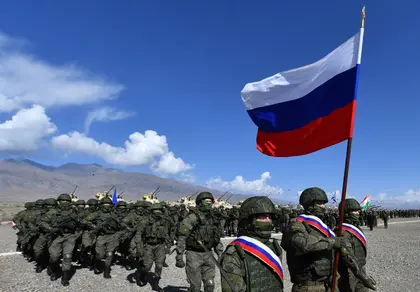The Russian military is reassigning experienced UAV (unmanned aerial vehicle) operators from ad hoc drone units to frontline assault squads, as per reports from multiple Russian pro-war Telegram channels.
This move, according to independent media outlet “Important Stories” in Russia, has sparked criticism from Russian military bloggers, often known as Z-bloggers.
JOIN US ON TELEGRAM
Follow our coverage of the war on the @Kyivpost_official.
Roman Saponkov, a military correspondent, criticized the decision, saying that many highly skilled drone operators – backed by extensive volunteer support and private sponsorship – are being repurposed for direct combat roles, resulting in increased casualties.
“This undermines years of effort and contributions by people across the country,” he stated, emphasizing that these operators’ expertise was vital for intelligence and strike operations.
Z-blogger Alexey Zhivov linked the shift to a growing number of unofficial ad hoc units in the Russian army, which has lured personnel available for assaults under the traditional Russian military command structure. He noted that battalions are being “shaken up” to reinforce assault capabilities as a result.
“Who’s going to join the good old meat grinder assaults? So they [military authorities] started reshuffling staff,” Zhivov wrote.
Vladislav Shurygin, another military commentator, said the proliferation of unofficial military units, which allowed Russian troops to avoid participating in assault operations, has created a stark contrast between the documented structure of the forces and the reality on the ground.

Kharkiv Front Line: Ukraine’s UAVs Eliminate 20 Russian Troops, T-80 Tank, and More
“There are so many ad hoc units that soon no one will be left to fight. There is an ‘infantry battalion’ on paper, but on the ground, no one is to send into assault. Whether it’s UAV operators, communication teams, or logistics crews,” Shurygin wrote, citing a source from the headquarters of one of the branches of the Russian Armed Forces.
“In a company of 90, at best, only 20 are ready for assaults,” he added.
The restructure has also been linked to the formation of the Rubicon Center for Advanced Unmanned Technologies within Russia’s Ministry of Defense, where some said commanders could be attempting to save their best men from the new unified branch by sending them to assault units.
Russian military authorities have praised the establishment of a unified, state-run UAV branch as a major step forward, claiming that it destroyed over 400 pieces of Ukrainian weaponry and equipment since its inception.
At the same time, Z-bloggers heavily criticized the move to disband ad hoc UAV units for the sake of a unified branch, primarily because the Russian army does not have a unified communication system.
Unlike Ukrainian forces, which use NATO’s unified communication system, Russian units struggle with inadequate communication infrastructure.
Shurygin warned of potential risks and questioned the effectiveness of the new UAV branch.
“During assaults, UAV support must be seamless. How long will it take to integrate these units with infantry? How many lives will be lost due to gaps in support?” he asked.
Roman Alyokhin, adviser to the head of the Kursk region in Russia and military commentator, speculated that commanders are reassigning UAV operators out of fear of losing their most capable personnel to the new UAV Center.
“Reports have increasingly surfaced indicating that UAV groups within units are being disbanded and reassigned to assault roles. It appears this may be linked to resistance against the Defense Minister’s decision to establish a UAV Center.
“Commanders seem concerned about losing their skilled operators – soldiers who can still handle a few more missions and potentially earn them medals,” he said.
An incident in September, where veteran operators from a Russian reconnaissance unit were killed after being reassigned to an assault mission, further fueled skepticism and prompted an internal investigation.
You can also highlight the text and press Ctrl + Enter






